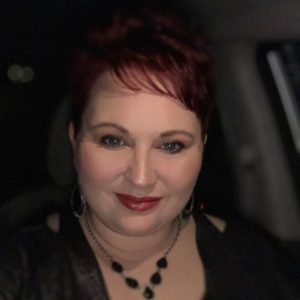 This author interview shares advice from published author Bonnie Griffin. To learn more about Bonnie, visit her website. You can also find her on Facebook, Instagram, and Twitter.
This author interview shares advice from published author Bonnie Griffin. To learn more about Bonnie, visit her website. You can also find her on Facebook, Instagram, and Twitter.
Can you share a little about your backstory and how you came to be an author?
Bonnie: I have always been an avid reader. When I was a kid, reading was how I escaped. I would lock myself in my room and read the same books over and over. Of course, I only had so many back then. It was before Kindle existed and technology of that nature. I would also write short stories, three to four pages each. As I got older, I started reading more and more. When I decided to go back to college, the first thing I thought about pursuing was writing. I wanted to write like I used to as a kid and create stories similar to the ones I had read. Those stories allowed me to get lost in their pages when I was having a bad day, and I hoped that people could read my stories and have the same kind of emotional connection to them.
What is your very first memory of writing?
Bonnie: Honestly, it was not a nice story. I was pretty young, maybe in middle school, and my parents had hired a nanny. They eventually decided they didn’t like the nanny and my aunt wound up bringing her on at her home. My cousin and I wrote a very elaborate, detailed paranormal story, and we based the characters on the nanny and her husband. That’s probably the first I can remember.
Do you have a creative writing process?
Bonnie: Typically, if an idea hits me, I’ll grab whatever writing tool I have closest to me. Once I have the idea down, I figure out the characters’ names and what kind of person they are. I’m not much of an outliner. I find the story comes to me as I’m writing, and on the occasion that I do create an outline, the story still has a tendency to veer off that track.
In your opinion, what distinguishes you from other authors?
Bonnie: Many of the stories I write draw from something that I have witnessed or personally experienced growing up in a home on the abusive side. Even when I’m writing about werewolves, dragons, or the queen of the underworld, some part of that story has a piece of truth in it. I think that helps bring some reality to the characters I write about, so people who have been through similar experiences can relate to them.
Aside from fiction, do you write any other genres?
Bonnie: I haven’t written anything outside of fiction so far. If you ask my cousin’s husband, he thinks I should absolutely write our life story. But, writing for me is more of a therapeutic tool. Those little pieces of truth intertwined into my fictional stories help me. I don’t know that I would ever publish the memoir-type writing I’ve done on the side for personal use.
For new writers, what is the best way to establish a good plot?
Bonnie: I think you need to write about something you’re passionate about. Don’t just try to write specifically to what’s on-trend. Research is also essential. If you want to write about a character who’s been abused or has been in a terrible car crash, you need to make sure you’re able to write from that perspective — especially if you haven’t experienced it yourself.
How can individuals improve their writing skills?
Bonnie: Write a lot. The more you write, the better you’re going to get. Have other people, even if they’re not writers, read your work and give honest feedback. People don’t necessarily like criticism, but receiving constructive criticism on your writing is how you’re going to get better. It’s also important to remember that the first draft is not your final draft. Revisions are where you can bring your story together and make it the solid piece of work you want to share with the world.
Do you have any advice for new writers that want to be published?
Bonnie: Do research to determine the best route for yourself. Self-publishing can be great, but it can also be expensive. On the other hand, finding a publisher can be taxing and disheartening because you will get way more rejections than acceptance letters. People need to be prepared for those rejections and know that some publishers will give constructive feedback, and others won’t. Also, make sure you research the publishers you’re trying to go with. Unfortunately, there are a plethora of small publishers out there that are only in it for their buck and they aren’t going to do anything for you other than put their name on the book.
When would you say a writer knows when they’re ready to share their work with the world?
Bonnie: I knew I was ready when I was ghostwriting. I got to a point with the story where I fell in love with the characters. I was crying as I was writing them, laughing with them, smiling with them, and I was like, “Hey, I’d love to share this story with someone else.” I couldn’t though because I was on contract and it wasn’t my story. That’s when I knew I had to start publishing in my own name. So, when you’re feeling like, “God, I want other people to know how great this character is, how strong she is, or how terrible she is,” then you’ve got to put your story out there. For me, even if only one other person reads a story I’ve written, all the work was worth it.
Would you recommend ghostwriting to new writers who want to start their career?
Bonnie: It’s a great way to get practice. There’s a lot of people who will hire, even if you’re new to it. Of course, the newer you are, the less you’ll get paid. But, if you’re not ready to put your name on something or if you’re trying to get your writing career started, it’s a way to earn an income doing what you love.
What is the best piece of advice you could give to a new author?
Bonnie: Make sure you research. You’ve got to research what you’re writing about, who you’re publishing with, and who will be helping you market your materials. Unfortunately, there are many people out there who will take your money and give you very little in return. So, you have to make sure you’re not just jumping on the first train you find.
Also, remember it’s hard work. Writers don’t just get to sit at home in their pajamas, write, publish a book, and have it take off. It’s going to take a lot of hard work putting yourself out there. I know a lot of us writers, myself included, are introverts. But we have to find a way to come out of our shell so that we can build a following of readers — people who will gravitate toward our books, want to read them and keep reading them as we publish more.
What has been the most rewarding experience in your writing journey?
Bonnie: Feedback from people who have read my books, especially my friends. I have some friends who are avid readers, and I was really nervous for them to read my work. Even more so than strangers. If they came back and said, “Oh, your grammar was terrible” or “I didn’t like your heroine,” that would have been hard. Luckily, that wasn’t the case. Instead, they would always ask when my next book was coming out, which made me happy.
What inspires you to write today?
Bonnie: I just love it. When a story comes to my head, I want to share it with the world. It’s like the characters are real people, and they’re often inspired by real-life events, people I’ve met, things I’ve seen, or things I’ve gone through. I also have two daughters, and I want them to know that if you’re passionate about something like I am about writing, you have to work hard and follow that dream if you want it to come true. Your passion can be your reality.
Are you reading anything for leisure right now?
Bonnie: Midnight sun. I am obsessed with Twilight. I also just finished J.R. Ward’s latest book, The Jackal. She is my favorite paranormal author and I read everything she writes.
Is there anything else you would like readers to know from this Q&A?
Bonnie: Everything I write comes from the heart. If anyone wants to read one of my books but can’t afford to do so, you can always reach out to me. I’ve lived that life and can get a book to a reader who really wants one. My number one goal is to share my stories.




